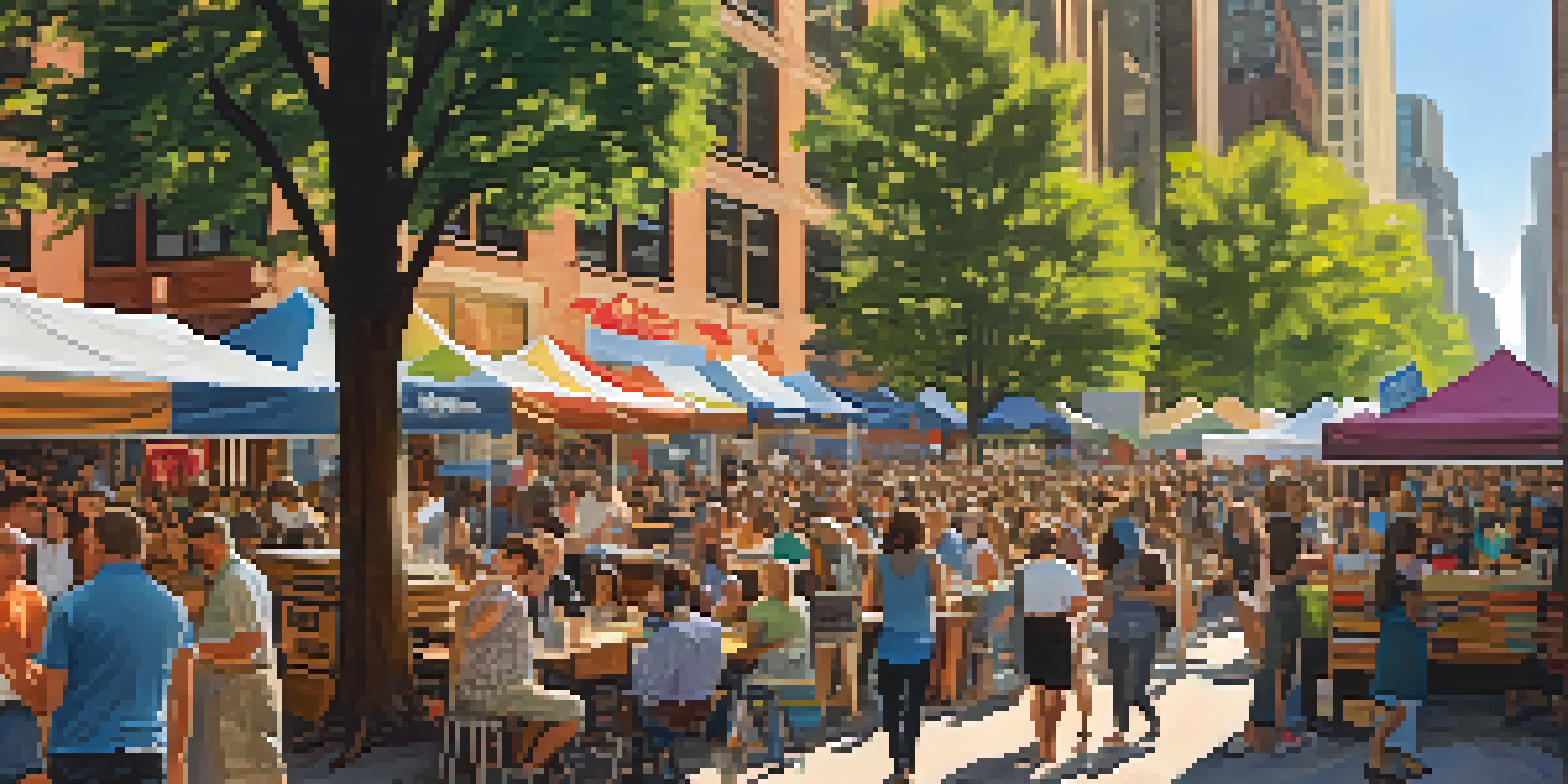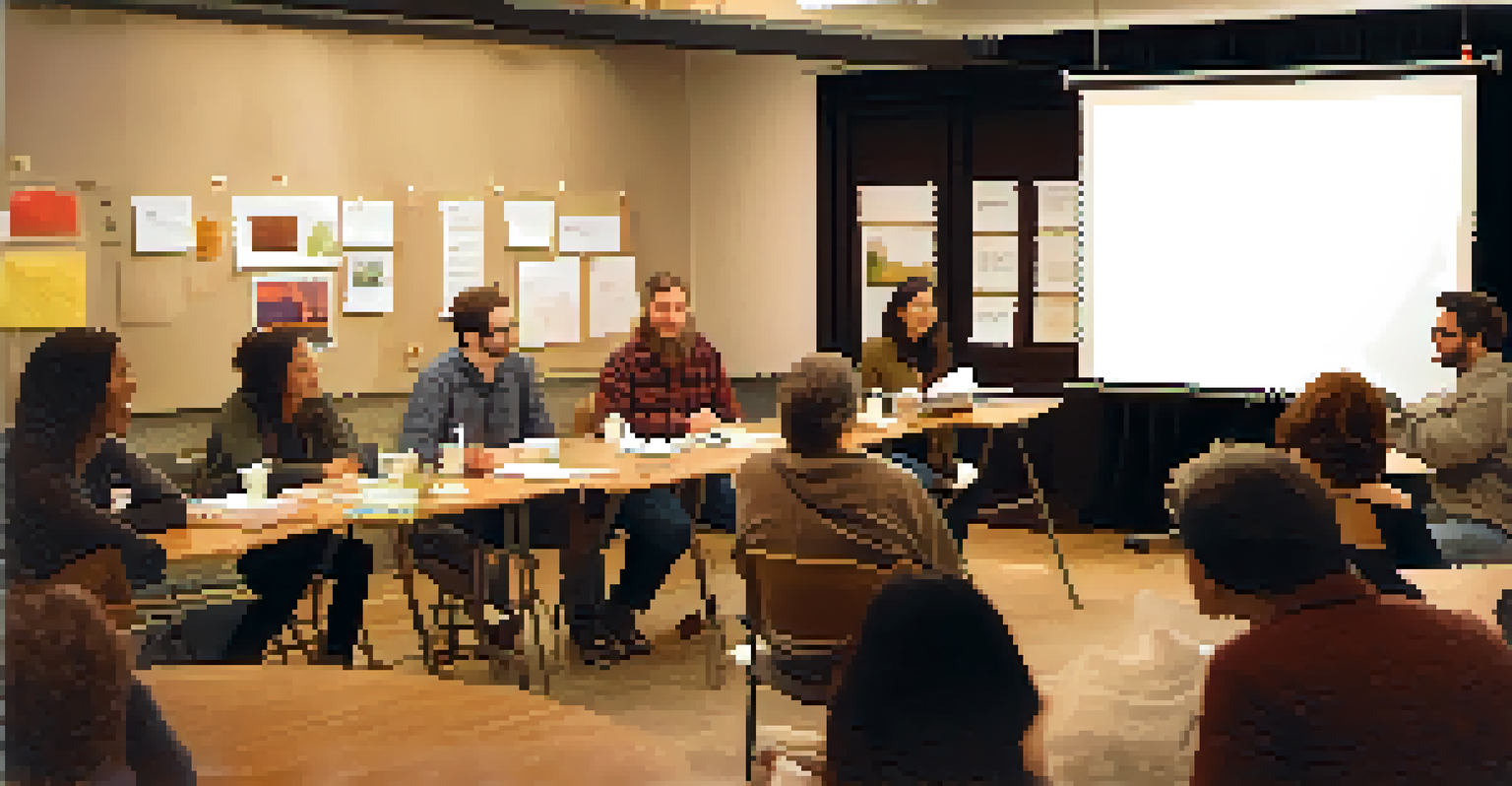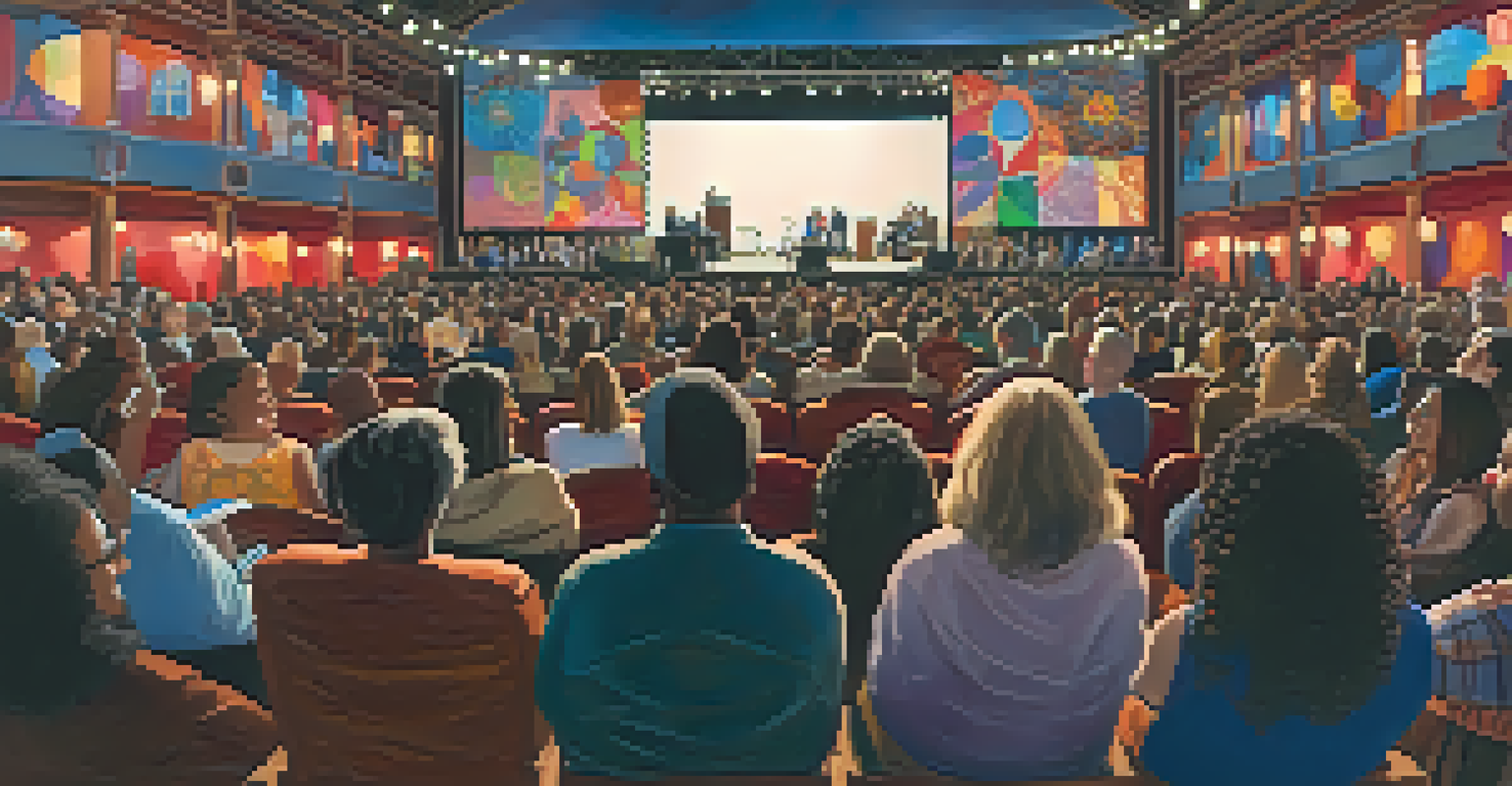Exploring the Rich History of Chicago's Literary Festivals

A Brief Overview of Chicago's Literary Scene
Chicago has long been a hub for literary talent and creativity. From the early 20th century to today, the city has nurtured countless authors, poets, and playwrights. This vibrant literary culture laid the groundwork for the emergence of literary festivals that celebrate this rich heritage.
Books are a uniquely portable magic.
These festivals serve as a platform for both established and emerging voices, allowing them to share their stories with a broader audience. Events like the Chicago Literary Hall of Fame and the Chicago Book Expo have become essential parts of the city's cultural fabric.
The city's diverse population contributes to a rich tapestry of literature that reflects a myriad of experiences and backgrounds. This unique blend is what makes Chicago's literary festivals so engaging and relevant.
The Origins of Chicago's Literary Festivals
The first literary festivals in Chicago can be traced back to the late 20th century when cultural events began to flourish. The Chicago Book Fair, launched in the early 90s, was one of the initial events aimed at promoting local authors and independent publishers. This set the stage for a growing appreciation of literature within the community.

As the years progressed, other festivals emerged, each with a distinct flavor and focus. The Chicago Poetry Festival, founded in 1994, brought together poets from various backgrounds to celebrate the art of spoken word, further solidifying the city's reputation as a literary hotspot.
Chicago's Literary Festivals Thrive
The city's vibrant literary scene is celebrated through festivals that showcase both established and emerging authors.
These early festivals not only provided a space for writers to showcase their work but also encouraged collaboration among literary enthusiasts, fostering a sense of community that continues to thrive today.
Key Literary Festivals in Chicago Today
Today, Chicago hosts a variety of literary festivals that cater to diverse interests and audiences. The Chicago Tribune Printers Row Lit Fest is one of the largest, drawing thousands of book lovers each year. This festival features author readings, panel discussions, and a massive outdoor book fair, creating an electrifying atmosphere.
Literature is the most agreeable way of ignoring life.
Another notable event is the Chicago Humanities Festival, which explores the intersection of literature, art, and social issues. This festival invites authors, thinkers, and artists to engage in thought-provoking conversations that challenge and inspire attendees.
Additionally, the Chicago South Side Literary Festival focuses on amplifying underrepresented voices, providing a platform for local authors and storytellers. This commitment to inclusivity enriches the literary landscape and encourages a broader understanding of diverse experiences.
Impact of Literary Festivals on Local Authors
Literary festivals play a crucial role in supporting local authors and their careers. For many writers, these events provide invaluable opportunities to connect with readers and industry professionals. Networking at festivals can lead to book deals, collaborations, and mentorships that might not have been possible otherwise.
Moreover, festivals often offer workshops and panels designed to help authors hone their craft. These sessions can cover a wide range of topics, from writing techniques to marketing strategies, equipping writers with the tools they need to succeed in a competitive industry.
Community Engagement is Key
Literary festivals foster a sense of belonging and connection among diverse audiences, enriching the local culture.
The visibility gained from participating in literary festivals can also significantly boost an author's profile. As they connect with audiences and showcase their work, they build a loyal following that can translate into book sales and future opportunities.
The Role of Community in Literary Festivals
Community engagement is a cornerstone of Chicago's literary festivals. These events bring together people from all walks of life, fostering a love for literature that transcends age, background, and experience. This sense of belonging is vital, as it encourages attendees to share their thoughts and insights.
Many festivals also partner with local schools and organizations, providing educational programs that inspire young readers and writers. These initiatives not only cultivate the next generation of literary talent but also emphasize the importance of storytelling in building community connections.
By creating an inclusive environment where everyone feels welcome, Chicago's literary festivals strengthen the bonds among residents, transforming mere spectators into active participants in the literary world.
Challenges Facing Literary Festivals
While Chicago's literary festivals are thriving, they do face challenges. Funding and sponsorship can be a significant obstacle, especially for smaller events. Many festivals rely on grants and donations to cover costs, making them vulnerable to economic fluctuations.
Additionally, the rise of digital media has changed the way audiences consume literature. While this shift presents new opportunities for engagement, it also raises questions about the relevance of traditional festivals in a rapidly evolving landscape.
Challenges and Future Outlook
While facing funding and digital challenges, Chicago's literary festivals are adapting and evolving to remain relevant.
Despite these challenges, the resilience of Chicago's literary community shines through. Organizers continually adapt their strategies, embracing technology and innovative ideas to keep the spirit of literary celebration alive.
The Future of Chicago's Literary Festivals
Looking ahead, the future of Chicago's literary festivals appears bright. As the city continues to grow and evolve, so too will its literary landscape. There is a palpable excitement about the potential for new voices and genres to emerge, reflecting the city's diverse population.
Technology will likely play an increasing role in these festivals, with virtual events and hybrid formats becoming more common. This shift will allow festivals to reach a wider audience, breaking down geographical barriers and inviting participation from around the globe.

Ultimately, the enduring commitment to storytelling and community engagement will ensure that Chicago's literary festivals remain a vital part of the city's cultural identity for years to come.